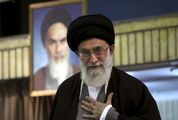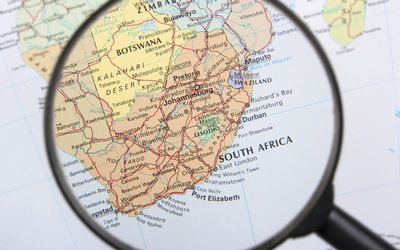WE NEED political parties. But we do not need to take them more seriously than they deserve. Last week’s state of the nation debate underlined two realities: that our attention is fixated on political parties, and that none of them have much of interest to say.
Political discussion and reportage here is mainly about parties. Huge attention is given to events that centre on them — their congresses and parliamentary debates. On social media, the bulk of political interest is focused on parties. At the end of today’s budget speech, media will make a beeline to the parties and ask them to comment.
But how many new ideas were floated during last week’s debate? None — it consisted largely of opposition members attacking the president and the governing party extolling its own achievements.
When did we last hear a new and interesting idea from a political party? It is a fair bet that party responses to the budget will be predictable and shallow and that we would be better off listening to citizens’ groups who bother to think about these issues. Do we really think our economic problems can be addressed by parties whose messages seem to consist largely of fanciful promises and warmed-over clichés?
This column has argued that parties will not reduce our racial divide. It is hard to think of any other problem they may solve. The most effective action by opposition parties of late has been taking the government to court. But you don’t need a party to do that: an NGO could do it just as well.
The governing party spends days in the limelight at congresses debating policies, but they are never implemented — nowhere in the world do governments simply do what party congresses tell them to do.
None of this means we don’t need parties. Democracy only works if people get together with like-minded others to form groups that compete for office. And, unless we have democracy, we have no way to hold power holders to account. Look at Gauteng, whose government has become far more careful about listening to voters since it lost ground at the last election.
Parties are taken so seriously here because citizens identify with them more than they do in many democracies. Here, parties are more than machines designed to compete for votes — they express who people are and so they identify with them and spend time on party activities. But parties are still not nearly as important as we are led to believe.
First, while more people take part in party activities here than in many other countries, those who do are still a small minority: the ANC has less than 1-million members, no more than 2% of the population, and the other parties are smaller.
In many cases, parties are vehicles for grassroots protest. But this does not mean that the protesters are active decision-makers in the party. Many South Africans also choose to engage in politics without joining parties — they are no less important to politics than party members.
Our parties have a specific purpose — to speak for people who share a political identity. That is important: people trust democracy more when they have someone to speak for them. But it also explains why it makes little sense to look to parties for solutions to problems. Because they exist to speak for a group, they gain nothing by taking seriously what other groups say. Or by admitting that what their group believes may be wrong. Or by suggesting new ideas that might offend some in the group. Or by moving outside the group to talk to, or, better still, listen to, others.
This explains why party politics here is often more about polarising clichés than interesting ideas. And why our prospects of getting out of our current mess will depend mainly not on parties but on citizens and the groups to which they belong.
It also tells us why we need to pay less attention to political parties that have an interest in not solving problems and far more to citizens’ groups whose interests are served by solving them. And why we need to devote far more attention to the ideas the country needs to move forward and the citizens’ groups that can make them a reality, than to the fights within and between parties, which are often more interesting for their entertainment value than for what they do to help us to solve problems.
• Friedman is director of the Centre for the Study of Democracy




















Change: 0.79%
Change: 0.68%
Change: 1.29%
Change: 0.34%
Change: 1.65%
Data supplied by Profile Data
Change: 1.38%
Change: -0.34%
Change: 0.79%
Change: 0.00%
Change: -0.19%
Data supplied by Profile Data
Change: 3.71%
Change: 3.12%
Change: 3.05%
Change: 2.91%
Change: 2.30%
Data supplied by Profile Data
Change: -0.05%
Change: -1.30%
Change: -0.14%
Change: 0.21%
Change: 0.14%
Data supplied by Profile Data